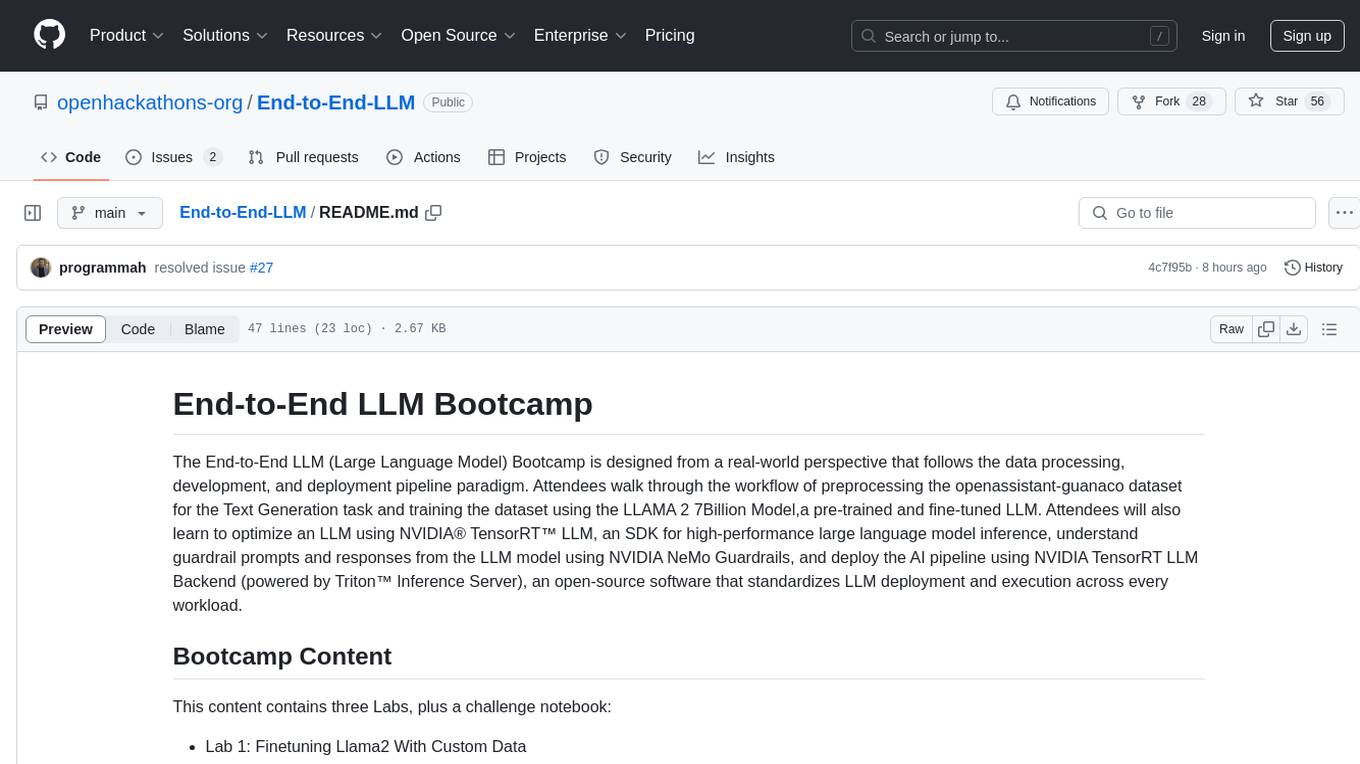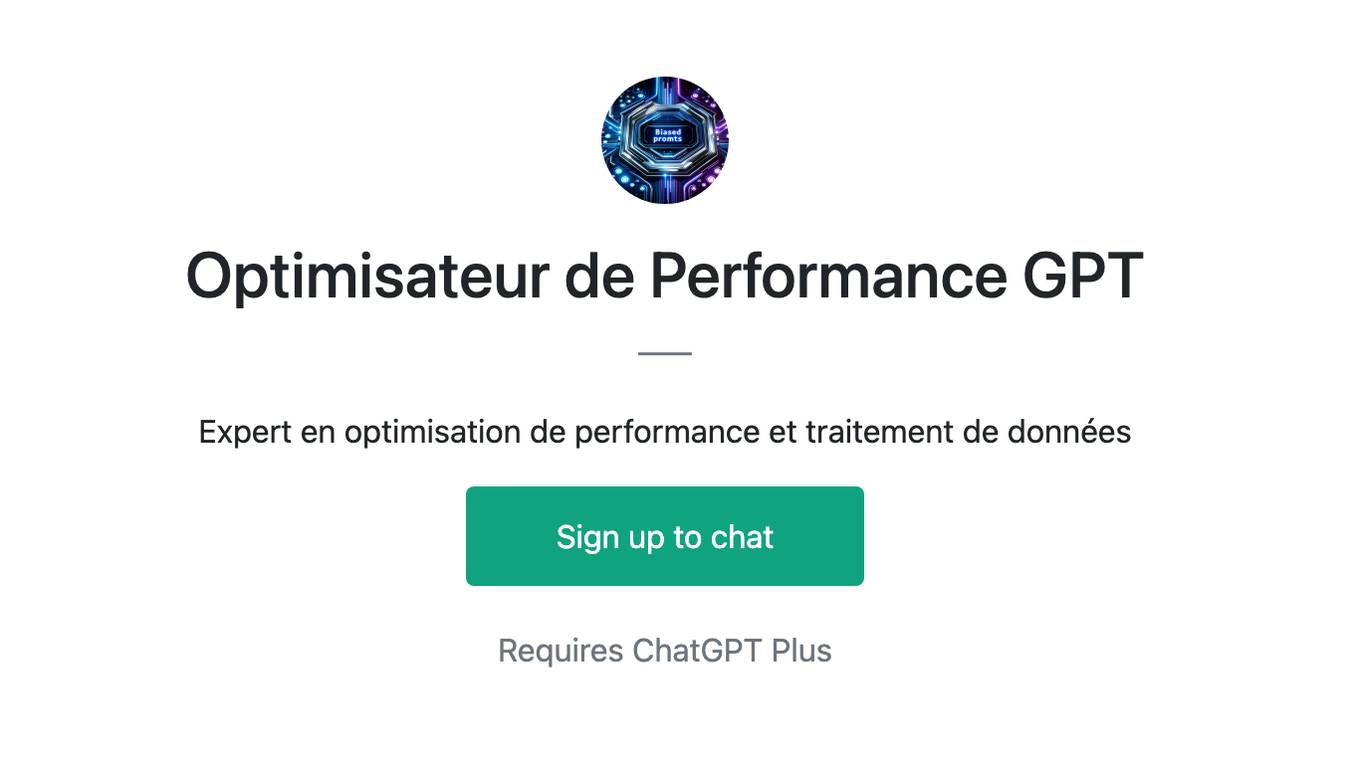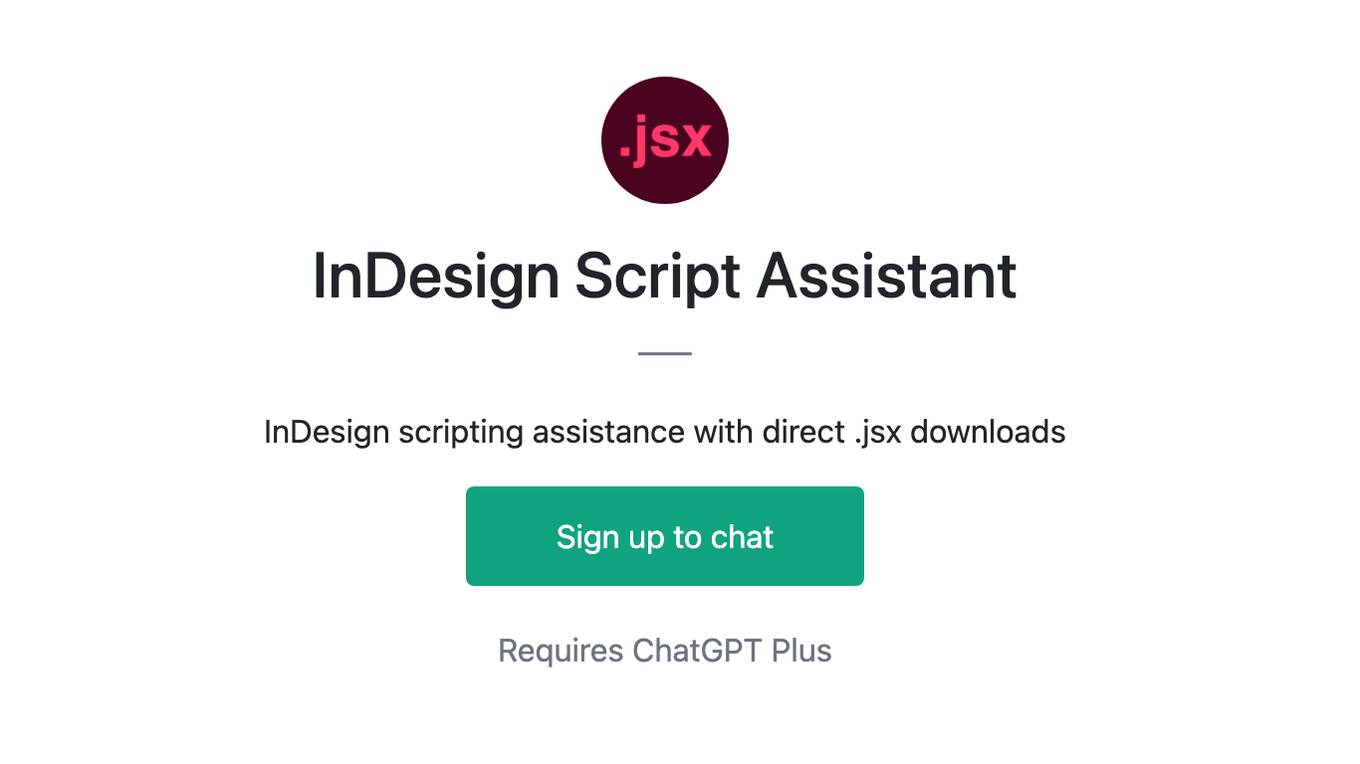Best AI tools for< Preprocess Dataset >
1 - AI tool Sites

HappyML
HappyML is an AI tool designed to assist users in machine learning tasks. It provides a user-friendly interface for running machine learning algorithms without the need for complex coding. With HappyML, users can easily build, train, and deploy machine learning models for various applications. The tool offers a range of features such as data preprocessing, model evaluation, hyperparameter tuning, and model deployment. HappyML simplifies the machine learning process, making it accessible to users with varying levels of expertise.
1 - Open Source AI Tools

End-to-End-LLM
The End-to-End LLM Bootcamp is a comprehensive training program that covers the entire process of developing and deploying large language models. Participants learn to preprocess datasets, train models, optimize performance using NVIDIA technologies, understand guardrail prompts, and deploy AI pipelines using Triton Inference Server. The bootcamp includes labs, challenges, and practical applications, with a total duration of approximately 7.5 hours. It is designed for individuals interested in working with advanced language models and AI technologies.
2 - OpenAI Gpts

Optimisateur de Performance GPT
Expert en optimisation de performance et traitement de données
